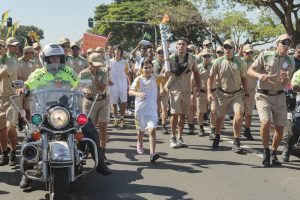With the 2016 Summer Olympic Games to begin in the coming days and the Paralympics set to follow in September, much of the world’s attention has been focused on Brazil and the host city, Rio de Janeiro. Numerous issues have plagued the country in the lead-up to the Olympic Games including political unrest, poor preparation and the Zika virus.
In recent months, much has been made of the Zika virus in Brazil, with many calling for the Olympics to be moved to a different location as a result of the illness, which has now spread to over 60 countries. These calls included an open letter, signed by 150 of the worlds leading scientists, stating that it would be “unethical” and “irresponsible” for the Olympics to be held in Rio de Janeiro considering the risks that the virus may pose to the expected 500,000 visitors and competitors that will travel to the city. In May this year, the health agency of the United Nations, the World Health Organisation (WHO), together with leading US public health officials released a statement arguing that it is not necessary to move the games from Rio de Janeiro. However, the WHO has released some travel advice to those planning on attending the Olympics, in order to minimise the risk of contracting the virus.
WHO has recommended the following:
- Continue to assess the travel advice provided by the both the Brazilian government and your own government.
- Always protect yourself from mosquito bites with the use of repellents, and light coloured clothing that covers as much of your body as possible.
- Practice safe sex or abstain from sex while in Brazil, especially if exhibiting symptoms of Zika virus.
- Stay in accommodation, with air conditioning so as to avoid open windows and doors.
- Avoid cities and areas that have higher risks of Zika virus.
While the WHO says it will continue to monitor the situation in Brazil, the Zika virus is not the only problem in Rio de Janeiro. The United Nations has at times been critical of the way the Brazilian military police treat its citizens. Specifically, the United Nations has spoken out against the way the Brazilian military police have used force against those living in slums, known as favelas.
Due to the violence witnessed not only in Rio de Janeiro but all around the world, UN Secretary-General Ban Ki-moon has taken the opportunity to try and call for world peace during the two-week event. Referred to as the “Olympic Truce”, Ban Ki-moon and Mogens Lykketoft, President of the General Assembly, have called for a global cessation to hostilities. All UN member states have been called to honour the truce, commencing seven days prior to the Olympic Games, and lasting until seven days after the final day of the Paralympics in September.
On this, the Secretary General stated: “A respite in fighting would manifest the values that the Games seek to promote: respect, friendship, solidarity and equality”. In a plea to all UN member states, Mogens Lykketoft added:
[I] call upon all warring parties of current armed conflicts around the world to boldly agree to true mutual ceasefires for the duration of the Olympic Truce, thus providing an opportunity to settle disputes peacefully.”
